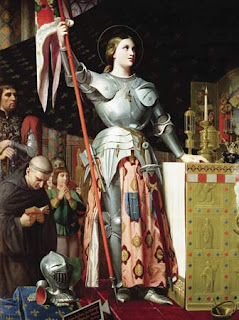Warning/Disclaimer: Serious Questions verging on Rant
Recently, I was informed (along with my co-workers) that the most important experiences of my students during their time in college come not from my classroom (or any classroom) or from their work in our mainstage performances, but from their own independent productions.
In fact, it was emphasized that their future success will come primarily from whether or not they direct, act, stage manage or design these independent shows. Not from anything learned from their faculty. Not from any application of analytical or critical work or study of literature. Not from any evaluation of projects, even to allow students to articulate their own intentions or aesthetics.
I found this... astounding. And quite unsettling.
It is agreed, further, that we put no guidelines or limits on their choices of material or how to handle that material. That there is no post-mortem to evaluate or even discuss how they did what they did, even when students use monies from school grants or divisional budgets. That there is minimal, if any, supervision. That encouragement is the only approach. And by "agreed" I mean "understood," a slightly different nuance, but the two words are interchangeable in this context, because the subject was never discussed.
What I hear, I think, is that despite achieving tenure, earning three degrees, and 24 years of practical experience as director, playwright, and literary manager, I may be completely useless to my students' educational process. And by "educational process," what is meant, it seems, is a self-organized series of student-driven and student-focused events without the outcomes of grading, analysis, critique, or review of any kind.

In fact, I strongly believe in encouraging students to take artistic, aesthetic, and collaborative risks, to expect them to challenge themselves by taking on unfamiliar and difficult material, and to move them toward interdisciplinary collaborations and mixed-media events. But I don't see the problem in also creating a rubric for post-event analysis, for articulate and public discussion before, during, and after the performances, and for faculty providing informed critique to their students on multiple levels. After all, that is why the university employs and tenures faculty, to hold those conversations in the classroom and out, if I am not mistaken.
If a student doesn't want or need these, why then is this person at university?
Go West, Young Man or Woman (or East) and get thee to auditions! This, too, is a time-honored form of entering show biz--in fact, this is the one that is millenia-old, while university programs in theatre and theatre training haven't been around for even a century.
I'd love to take part in a series of conversations wherein students articulate and discuss their artistic, political, and interpersonal choices. Where they must recognize failure as well as success, on several planes. Because they'll have to do this, too, to get grants, residencies, financing, jobs and roles, as well as the time and space to produce their future work.
I also don't understand the statement of disconnect between the skills and techniques we teach in the classrooms (including those in history, dramatic criticism, and cultural studies) and production processes and outcomes.
After all, the faculty are members of (and paid by) an academy of learning--a university--which requires a huge amount of money per student per year to attend this specific program with the expectation, I would imagine, that students (and their families) pay so much money in order to study with faculty hired by the university as intellectual and practical experts. Not simply the opportunity to work in a variety of spaces with minimal resources without accountability.
And whether the money is paid by parents, scholarships from the university or other sources, loans from the government, or some other resource, the traditional notion is that while extracurricular opportunities are necessary and exciting, the tuitions and fees are aimed primarily at the chance to work with superior faculty--all of us--and to learn from a variety of approaches and points of view.
Or that's what the brochures say.
We know that students learn as much if not more from failure than they do from success, or from working within boundaries and limitations than they do from being turned completely free.
What if they can't even identify the difference between failure and success? or see how a failure is also an opportunity for success, or a partial success, or simply growth?
What if they have no accountability? How will that prepare them for working for someone else, or applying a grant, or thinking a process all the way through, or weighing consequences?
What if they can't articulate their goals, beyond "Let's put on a show!"?
What if they receive nothing but encouragement and positive support, where critique of any kind is seen as negative?
Then, to my mind, no matter how many shows they've put on to the applause of their peers and their family, we've failed them.



























